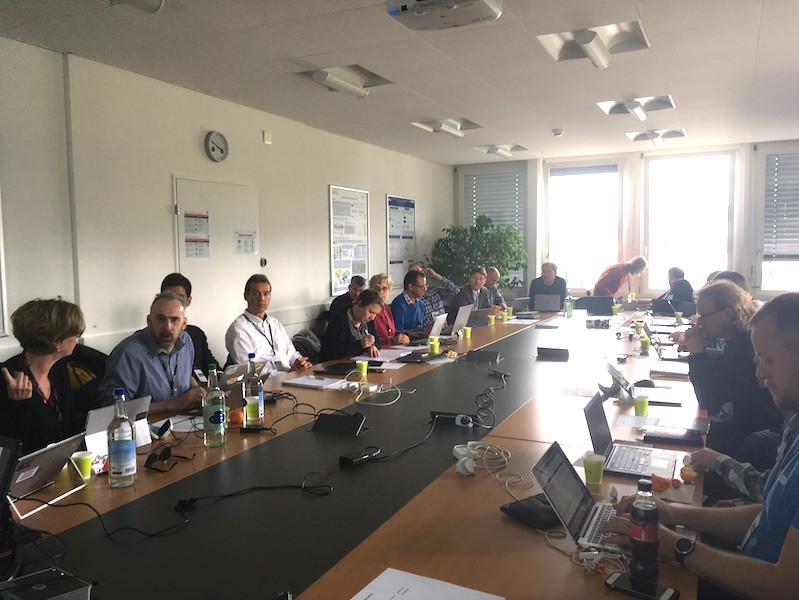Closer links between PaNOSC and ExPaNDS established at the LEAPS-IT meeting
On 13-15 May 2019, the Paul Scherrer Institute hosted the LEAPS-IT meeting, where both PaNOSC and ExPaNDS were presented, to stimulate the discussion about the possible fields and activities for collaboration between the two projects, which have the common goal of making science reliable and reproducible. Andy Götz, PaNOSC coordinator, gave an overview of the project and its status, showcasing the main indicators set for the monitoring of the performance, according to the project’s goals. In his presentation, Götz spoke about how PaNOSC will contribute to making FAIR data a reality by providing the tools and services, which will allow linking all scientific data and output together. To make an example, PaNOSC has six data catalogues with different APIs (Application Programming Interfaces) and UIs (Unique Identifiers). One of its main tasks to foster the application of FAIR principles is to implement a common API searchable across sites, recalling the Google Dataset Search tool, and going beyond it by aligning and integrating software and technology specifically for PaN facilities. The main objectives of the project were finally presented, and namely: - Integrate RIs with EOSC – Participate in the construction of the EOSC by linking with the e-infrastructures and other ESFRI clusters. - FAIR data – Make scientific data produced at Europe’s major Photon and Neutron sources fully compatible with the FAIR principles. - Open data policies – Generalise the adoption of open data policies, standard metadata and data stewardship from 15 photon and neutron RIs and physics institutes across Europe. - Data services – Provide innovative data services to the users of these facilities locally and the scientific community at large via the EOSC. - Sharing data – Increase the impact of RIs by ensuring data from user experiments can be used beyond the initial scope. - Working with ExPaNDS – Share the outcomes with the national RIs who are observers in the proposal and the community at large to promote the adoption of FAIR data principles, data stewardship and the EOSC. With reference to the latter, the LEAPS-IT meeting has been a first milestone towards a closer collaboration between PaNOSC and ExPaNDS. A common document is being prepared to define the domains of cooperation as the next step towards ensuring an integrated approach for the benefit of the PaN community.
Keywords
EOSC, European Open Science Cloud, Open Science, Open Data, PaNOSC, ExPaNDS

